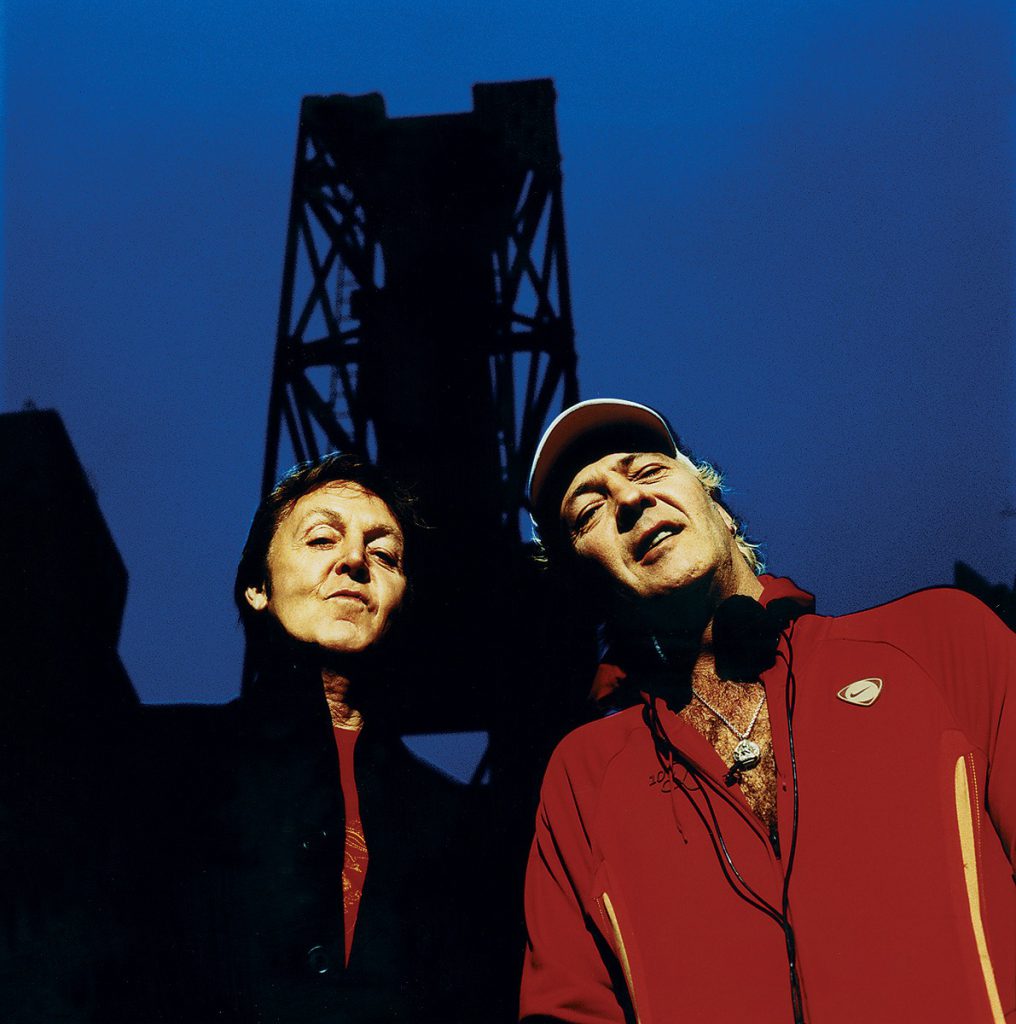
Speaking of collaboration, you did The Fireman project with Paul McCartney.
Again, that was a real privilege. It wasn’t a Paul McCartney album. It was a Fireman album, and I was in the band. It meant I could go a little bit further than my remit as a producer and really direct it. We could go very experimental. On the first album [Strawberries Oceans Ships Forest], you’d be hard to ever work out it was Paul McCartney unless someone told you. He’s playing 90 percent of the parts on it. That’s in the tradition of him and his avant-garde history. By the time we got to Electric Arguments, I was like, “Well, we’ve done all that. Let’s do that, but harnessed to some improvised, great songs.” We would write, record, and mix two or three songs a day, and it would be a six or seven hour day. I’d start early. I would get in at 9 a.m. and create four different soundscapes: Usually beats, basically, like a hip-hop thing from samples or whatever I felt. He’d come in at about 10 or 11, and he’d go, “What have you got?” I’d play him four things and he’d say, “Oh, I like that.” We’d start developing that, build it up, and then I’d take the sources out, if there were any, and develop them further. He’d go, “What about this one?” He’d get straight on it and do another. We were doing cut-up lyric techniques, sampling lyrics from Ginsberg poems. I’d bring books of lyrics in and say, “Pick a line, we’ll write it down, cut it up, throw it up, and see if it suggests a song.” We made it like a game; we made it fun and quite naive. It took away the, “You’re Paul McCartney, one of the greatest songwriters in the last 100 years” pressure. Let’s have some fun, see what happens, and see if some magic comes out. He’d end up finishing the lyric in 15 or 20 minutes. Especially that third album [Electric Arguments], people say it’s some of the best work he’s done since Band on the Run. Those songs are incredible, and so different and innovative for him. It was a real blessing for me. It was under the radar, so we could experiment, but I could still deliver classic McCartney material at the end.
That’s pretty perfect. There’s such a pressure for artists to stay in their lane or, “Write another ‘Yesterday,’ Paul.”
That can weigh heavy on an artist, especially on an artist like McCartney. There have been fallow periods when he’s made albums that haven’t been so good. In fact, 90 percent of those great artists from the ’60s and ’70s stopped making great albums 20 or 30 years ago because they don’t have managers. They have employees for whom it doesn’t matter if the record’s successful or not. They’re still getting paid. There’s no manager who’s saying, “If I don’t make this a hit, I’m not getting paid.” That can be a massive problem. Often the people around them are just yes men who don’t have the courage to tackle that on a creative level, or haven’t been asked to, so the artists don’t have a backboard. Nobody’s saying, “That’s not good enough.”
Youth – Interview with TapeOp, March / April 2023
